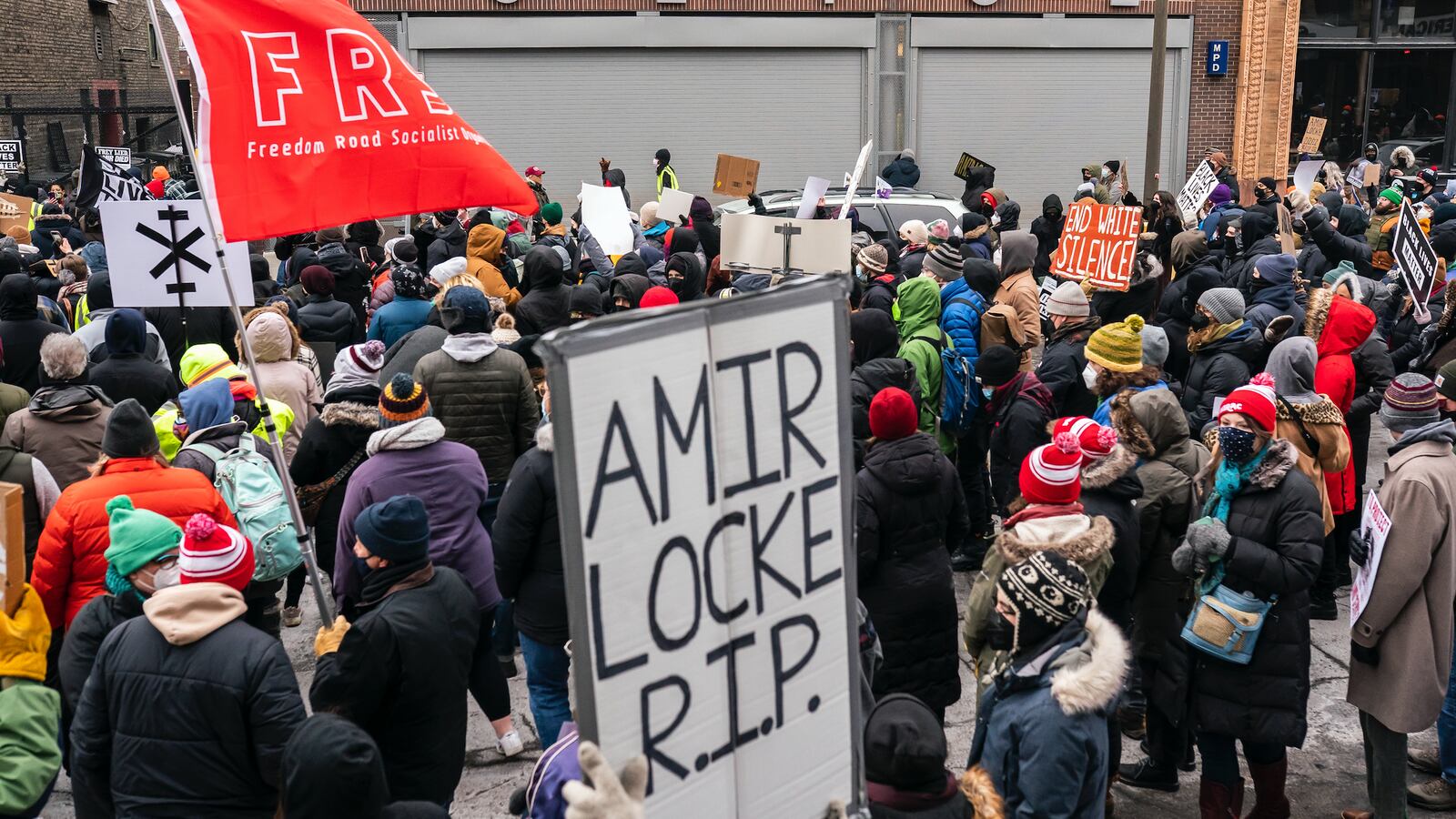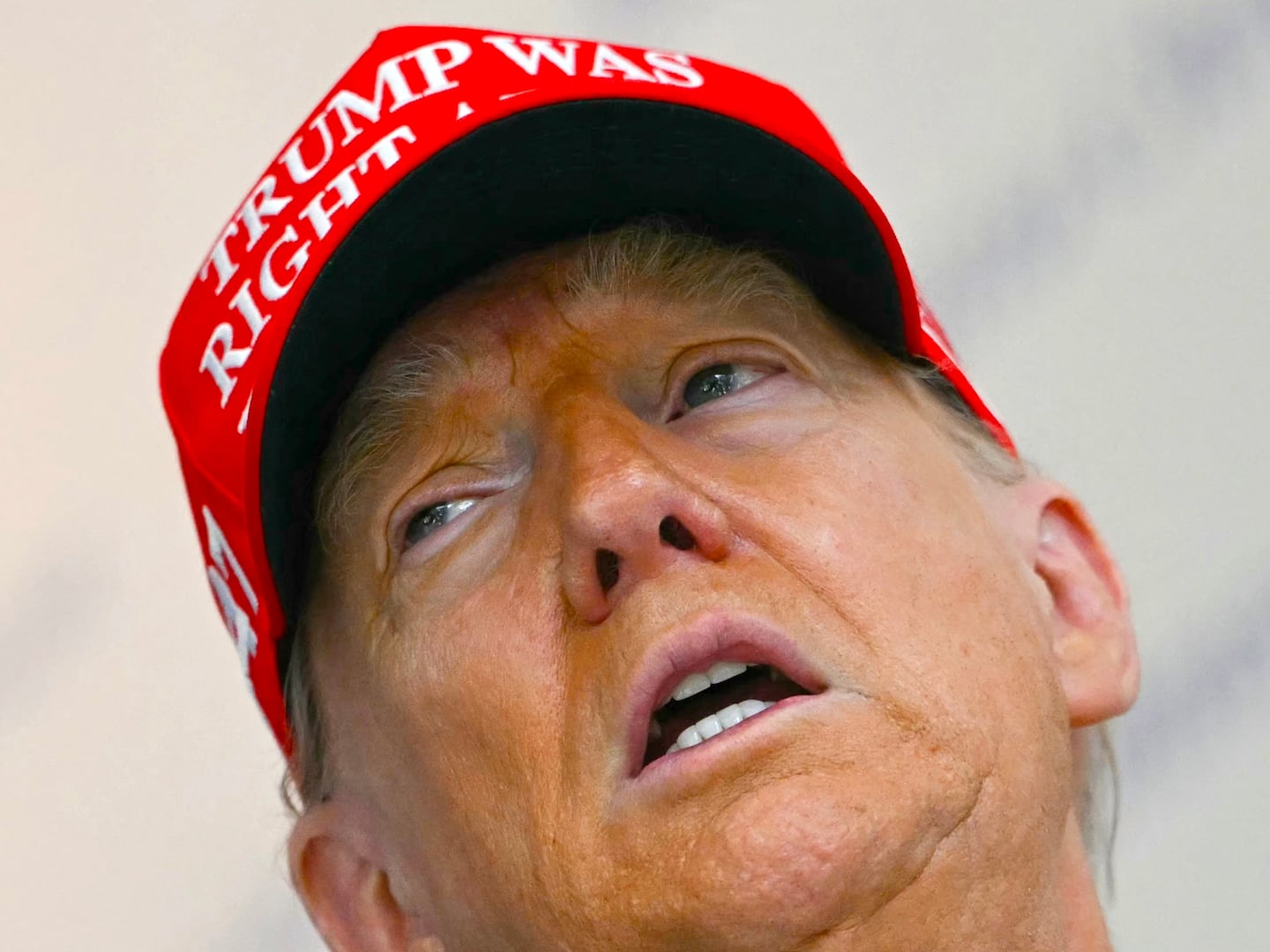Minnesota prosecutors on Tuesday announced the arrest of a 17-year-old cousin of Amir Locke, the 22-year-old Black man who was fatally shot by Minneapolis cops in a notorious no-knock raid last week.
During the early-morning Feb. 2 incident, Minneapolis Police Officer Mark Hanneman shot Locke—who was not the target of the operation—within seconds of breaching the apartment in which he was sleeping. Locke was armed with a handgun at the time, which his family has said he owned legally.
Minneapolis police reportedly insisted on a no-knock—or unannounced—raid in the case, even though the Saint Paul cops investigating the homicide did not ask for one.
On Tuesday, law enforcement announced plans to charge the teen they were after—who is a juvenile and was arrested on Sunday—with two counts of second-degree murder. The charges come in connection with the Jan. 10 death of Otis Rodney Elder in Saint Paul. A petition against the suspect indicated that the apartment in which Locke was fatally shot belonged to the suspect’s brother’s girlfriend.
The petition states that cops had warrants for two other apartments at the complex—called Bolero Flats—where Locke was killed. Police said they found clothes, a duffle bag, and other evidence tied to the murder suspect in the building. Most of that evidence was recovered from units besides the one in which Locke was killed, though cops said they found a black Canada Goose jacket with fur that they believed belonged to the suspect at the apartment Locke was staying in.
Police eventually found the 17-year-old they were after in Winona, Minnesota, on Sunday, where they said he was arrested while in possession of a loaded gun.
Protests have raged in Minneapolis in recent days, recalling widespread and sometimes destructive unrest after Minneapolis cop Derek Chauvin murdered George Floyd in the city in May 2020. That notorious incident—in which Chauvin pressed his knee onto Floyd’s back and neck for over nine minutes—helped launch a nationwide uprising over police racism and brutality.
Chauvin has since been convicted and sentenced to decades in prison, while three officers who also presided over Floyd’s murder are currently facing trial on federal civil rights charges.
No-knock warrants involve cases where police do not announce themselves before breaching an apartment, and are widely derided by experts and activists for inviting police violence against people of color. As the furor over Locke’s death at the hands of police escalated last week, Minneapolis Mayor Jacob Frey—who won re-election last year after facing harsh scrutiny in the aftermath of Floyd’s murder—announced a new policy on no-knock warrants in the city. Citing a collaboration with embattled Black Lives Matter activist DeRay Mckesson, Frey detailed a moratorium on the practice, even as he left the door open for it to be used in extreme scenarios that required special tactics.
Frey was also forced to play defense at a City Council meeting Monday, during which he admitted that he had previously suggested he was imposing a ban on the practice, and had failed to do so. Instead, the 2020 policy simply served to put pressure on cops to announce themselves as they crossed the threshold into homes, and the Star Tribune reported that no-knock raids continued apace.







